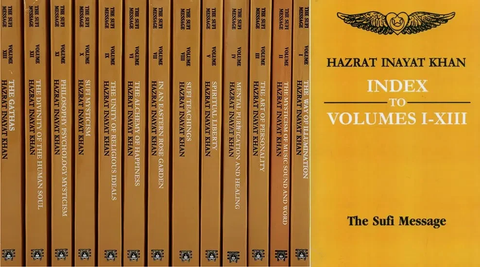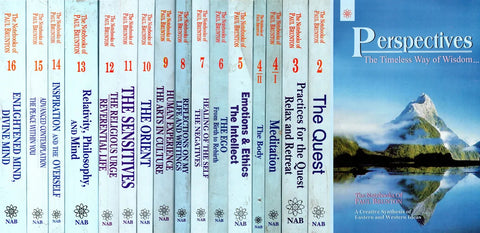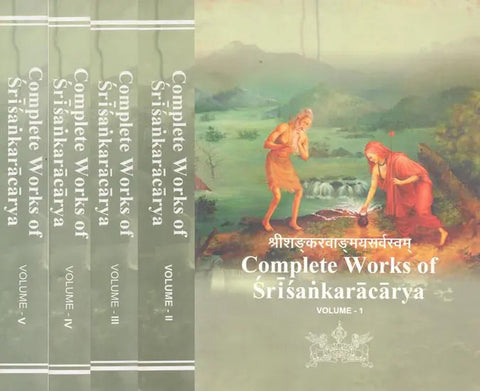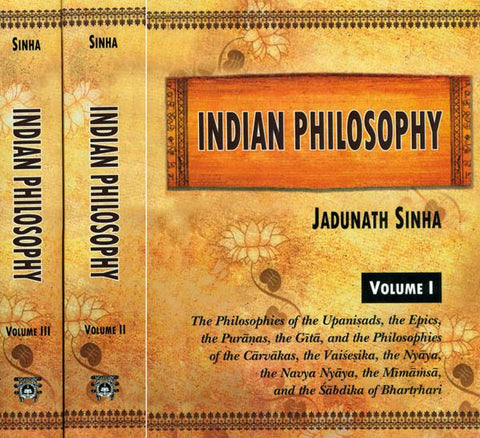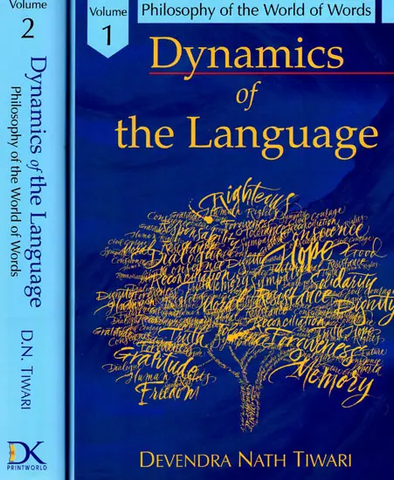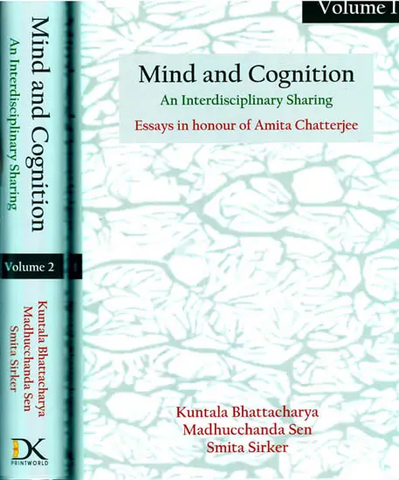Your cart is empty now.
The essays included in this volume are revised version of papers presented at the Radhakrishnan Centennial Conference held at Miami in April 1988. The essays included in this volume are not merely a repetition of the old themes. They contains new perspectives on Radhakrishnan. It is sign of a great philosopher that he is read and re-read, criticized and defended continuously. This volume is also comprehensive in dealing exhaustively all the important aspects of his thought. The volume contains essays by the following contributors : Paul Arthur Schilpp, Visvaldis V. Klive, Robert N. Minor, Alex A Wayman, B.K. Matilal, Christopher Chapple, Troy Organ, Krishna Mallick, George Chemparathy, S. Gopalan, David M. Brookman, Narayan Champawaat, Harry Buck, J.G. Arapura, Anindita N. Balslev, Ishwar C. Harris, Donald Tuck, Boyd Wilson, S.S,. Rama Rao Pappu, John M. Koller, Purusottama Bilimoria, Richard Stadelman, Carl Olson, K. Sundaram, Hope K. Fitz, Judy Saltzman, Arindarn Chakravarty, Sakuntala Gangadharam, B David Burke, Robert M. Kleinman, Kevin Sullivan, Anil Sarkar, Anand Mohan, Yeager Hodson, T.S. Devadoss, Kaisai Puhakka, Fred G'. Sturm, and Jerald Richards.
Professor S. S. Rama Rao Pappu is at the Department of Philosophy, Miami University, USA.
Foreword
This collection of new essays’ on Radhakrishnan’s personality and thinking is the most comprehensive to come out after the volume on his philosophy edited by P.A. Schilpp; This contains 38 essays dealing almost exhaustively with different aspects of his thought.
Till today Radhakrishnan is the only Indian philosopher who has expounded in English a particular type of idealism in a most charming and elegant manner. In its own way his idealism is an original development, under the influence of western philosophy, of what he takes to be the Upanishadic view. He contends that the highest value and the truly real are inseparable. The; Absolute is real, consciousness and freedom. Sometimes he substitutes "delight" or "spirit” for "freedom’. The real (he wrote) includes ideas and if these are interpreted as ideals or values, an idealist view of the universe results. Such a view, according to him, finds the universe to be meaningful I and life to be purposeful.
For years before he came to occupy high offices Radhakrishnan devoted himself to develope what he called a self-understanding of religion and a fitting of religious convictions with facts known, from empirical experience and science. He took this endeavour to be an exposition of and exhortation to spirituality. He believed that the fundamental spiritual conviction is “the consubstantiality of the spirit in man and God. He also phrased it thus: that which is in the very centre of man’s being is akin to the Supreme. He also spoke of the unity of the universe and its being essentially Spirit. He expressed these ideas beautifully and attractively. The papers in this book have evaluated his work in various ways.
Quite from an early age Radhakrishnan began concerning himself with civilizational, national, social, ethical and political issues. He read, thought and expressed views on them. As Vice- President and President of India he spoke often on democracy, secularism and other subjects. These later speeches of his are as important as what he wrote and spoke earlier; perhaps in these spontaneous outpourings there is more originality than in his writing and earlier speeches.
It is to Radhakrishnan’s Indian —Philosophy and his translations and commentaries of the Upanishads and Gita that the interested Indian elite (e.g. Jawaharlal Nehru, Jayaprakash Narayan) turned in the intra-war period. From 1952 to 1967 when Radhakrishnan was in high offices of State, not only his writings attained greater vogue, but the media daily communicated to the Indian people what he was saying on things which mattered to them. During this period he travelled extensively all over the world receiving numerous honours and making impact on very important persons as well as on ordinary people. Academic Indian philosophy was more or less symbolised by him; by and large people considered that only what he wrote and said was Indian Philosophy. There were of course philosophers in universities, some in Indian and more in other countries, who did not think so. But India has not yet produced a University Professor of Philosophy who has exerted greater influence than him on its people.
Professor S.S. Rama Rao Pappu has been making an invaluable contribution to the promotion and propagation of Indian philosophy through his conferences at Miami University. The conference on Radhakrishnan organised by him, judging by the number and quality of its paticipants, is one of the most successful among them. This volume will bear permanent witness to this. I hope it will be read widely.
Preface
The essays included in this volume are revisions of papers originally presented in the Radhakrishnan Centennial Conference I Had organized at Miami University in April, 1988. Due to circumstances beyond my control, the publication of these "new essays" was delayed, but the delay did not fortunately make them "old." Only three papers in this volume were published in philosophy journals elsewhere. They are now reprinted in this volume. Unfortunately, however, three contributors to this volume, B. K Matilal, Troy Organ and Paul Arthur Schilpp did not live to see this volume in print. This volume is dedicated to the memory of these three scholars.
There are, it seems to me, four anthologies consisting of essays on Radhakrishnan, the earliest and the most erudite being Paul Schilpp’s Library of Living Philosophers’ volume on The Philosophy of Sarvepalli-Radhakvishnan published in 1952. The essays included in this volume are not merely a repetition of the old themes. They contain new perspectives on Radhakrishnan. It is the sign of a great philosopher that he is read and re-read, criticized and defended continuously. This continuous evaluation is a sign of vitality of a great philosopher, not an exercise in superfluity. That these essays are appearing almost fifty years after the publication of Paul Schilpp’s volume in the Library of Living Philosophers is an indication that Radhakrishnan’s volume philosophy is alive and thriving. Indian philosophers have lived in the shadow of Radhakrishnan during his life—time. Though recent trends in Indian philosophy seems to be a struggle to walk away from Radhakrishnan’s shadow, he has entered the Indian philosophic consciousness so deeply that it will take some time to be weaned away from Radhakrishnan’s influences. A review of the contents of the present volume will reveal that most of the contributors to the volume live in the West and are taking an "external" point of view on Radhakrishnan both in time and distance. This volume is also comprehensive in covering all important aspects of Radhakrishnan’s thought. Last but not least, these essays are also written as a tribute to a great philosopher on the centennial of his birth anniversary.
My work as Editor of this volume was made easier and enjoyable because of the help given by many friends, especially K. Satchidananda Murty for writing the Foreword to this volume, Purusottama Bilimoria, General Editor of the series, Naresh Gupta of the Indian Books Centre who has patiently waited for the manuscript to reach his hands and who has expeditiously printed it when it has reached him. My thanks are also due to Miami University for providing me a modest grant to organize the Radhakrishnan Conference and finally to my wife, Suryakantham, who knew the Radhakrishnan family since childhood and has provided me some missing biographical insights about Radhakrishnan.
| Foreword | vii | |
| Preface | ix | |
RADHAKRISHNAN : THE PERSON, HIS WRITINGS AND IHS LEGACY |
||
| 1 | Sarvepal1iRadhal Krishnan : The Philosophical Bridge between Orient and Occident/ Paul Arthur Schilpp | 3 |
| 2 | Radhakrishnan’s Lutheran Connection/ Visvaldis Klive | 15 |
| 3 | Perennial Issues in Radhakrishnan Scholarship/ Robert N. Minor | 29 |
| 4 | Remarks on Three Radhakrishnan Introductions/ Alex Wayman | 43 |
| 5 | Radhakrishnan and the Problems of Modernity in Indian Thought/ B.K. Matilal | 55 |
| 6 | Kavis or Rsis : The Legacy of Radhakrishnan and the Discipline of Hindu Studies/ Christopher Chapple | 65 |
| 7 | Radhakrishnan’s Contributions to Western Thought/ Troy Organ | 75 |
| 8 | Radhakrishnan’s Contributions to Philosophy/ Krishna Mallick | 89 |
RADHAKRISHNAN AND RELIGIOUS PLURALISM |
||
| 9 | Radhakrishnan’s Conception of the Veda/ George Chemparathy | 103 |
| 10 | Radhakrishnan’s Approach to Yoga S. Gopalan |
129 |
| 11 | Radhakrishnan and the Development of a Global Paradigm of Meaning/ David M. Brookman | 143 |
| 12 | Radhakrishnan and the Doctrine of Karma/ Narayan Champawaat | 163 |
| 13 | On Having More than One Home/Harry Buck | 173 |
| 14 | Radhakrishnan’s Approach to Religious Diversity/J.G. Arapura | 187 |
| 15 | Radhakrishnan as the Exponent of Advaita Vedanta on the question of Encounter of Religions/Anindita N Balslev | 211 |
| 16 | Radhakrishnan : The Prophet of the Religion of ‘The Spirit/Ishwar C. Harris | 225 |
| 17 | Radhakrishnan’s Eternal Religion (Santana Dharma)and the Religions/ Donald Tuck | 245 |
| 18 | Sarvepalli Radhakrishnan’s Use of Christian Scripture /Boyd Wilson | 265 |
| 19 | Radhakrishnan and Tolerance in Hinduism/ S. S. Rama Rao Pappu | 299 |
| 20 | Radhakrishnan’s Philosophy of Religion/ john M. Koller | 309 |
RADHAKRISHNAN’S METAPHYSICAL QUEST |
||
| 21 | ‘Saving the Appearances in Plato’s Academy/ Purusottama Bilimoria | 327 |
| 22 | Radhakrishnan’s Pantheism : Internal Relations to God’s Mode of Being/Richard Stadeliman | 345 |
| 23 | Radhakrishnan’s Understanding of the Human Body/Carl Olson | 367 |
| 24 | The Perceptual, the Conceptual and the Spiritual 1 Radhakrishnan’s Metaphysical Quest/ K Sundaram | 383 |
| 25 | The Nature and Significance of Intuition/Hope K Fitz | 393 |
| 26 | The Individual and the Avatara in the Thought of Radhakrishnan/Judy Saltzman | 405 |
| 27 | The Third Sense of Idealism /Arindam Chakravarty | 423 |
| 28 | The Advaita of Sankara and Radhakrishnan/ Sakunthala Gangadharain | 443 |
| 29 | The Idealist Tradition 2 Radhakrishnan and Berkeley/B. David Burke | 461 |
| 30 | The Mystery. of Creation in the Thought of Radhakrishnan and Sri Aurobindo/Robert M. Kleinman | 485 |
| 31 | The Problem of Evil in Radhakrishnan and Aurobindo/ Kevin Sullivan | 497 |
| 32 | Radhakrishnan and Whitehead: Their Philosophic Methods from West-East Perspective/ Anil Sarkar | 507 |
RADHAKRISHNAN, SOCIETY AND ART |
||
| 33 | Radhakrishnan on Man, God and the State / Anand Mohan | 525 |
| 34 | Radhakrishnan and Humanism/ Yeager Hudson | 547 |
| 35 | Perspectives on Social Philosophy : Radhakrishnan’s View / T. S. Devadoss | 561 |
| 36 | Radhakrishnan’s Philosophy of World Involvement/ Kaisa Puhakka | 577 |
| 37 | Radhakrishnan’s Philosophy of Art/ Fred G. Sturm | 591 |
| 38 | Radhakrishnan Religion and World Peace/ Jerald Richards | 603 |
Delivery and Shipping Policy
- INTERNATIONAL SHIPPING
- Rs.1000-1100/kg
- ESTD. Delivery Time: 2-3 weeks (depending on location)
- Bubble Wrapped with Extra Padding
- NATIONAL SHIPPING
- NCR: Rs. 30/half kg
- Standard: Rs. 80/half kg
- Express shipments also available on Request
- ESTD. Delivery Time: Ranging from 1-4 days up to 7 business days (Depending on your choice of Delivery)
- TRACKING
- All orders; national or international, will be provided with a Tracking ID to check the status of their respective orders
- Depending on the Shipping Service, Tracking ID may be used on their respective tracking portals
Frequently Asked Questions (FAQs)
Domestic Shipping: 3-4 Days (after shipping)
International Shipping: 1-2 weeks (based on your location)
You will receive an email once your order has been shipped or you can email us if you didn't receive tracking details (info@mlbd.co.in)
Every book that we sell is the latest edition except all the rare books
Yes, we do provide free shipping, only on domestic orders (within India) above Rs.1500


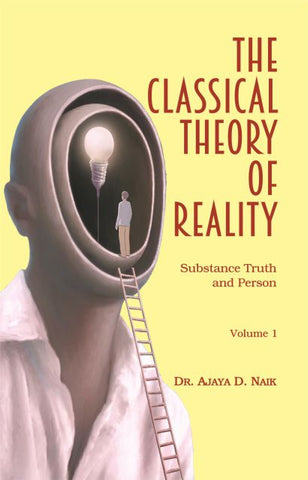
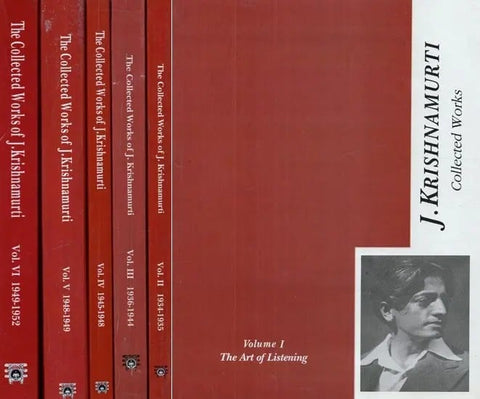

![A HISTORY OF INDIAN PHILOSOPHY [5 VOLUMES] by Surendranath Dasgupta](http://www.motilalbanarsidass.com/cdn/shop/products/HISTORYOFINDIANPHILOSOPHY_large.jpg?v=1675238163)
